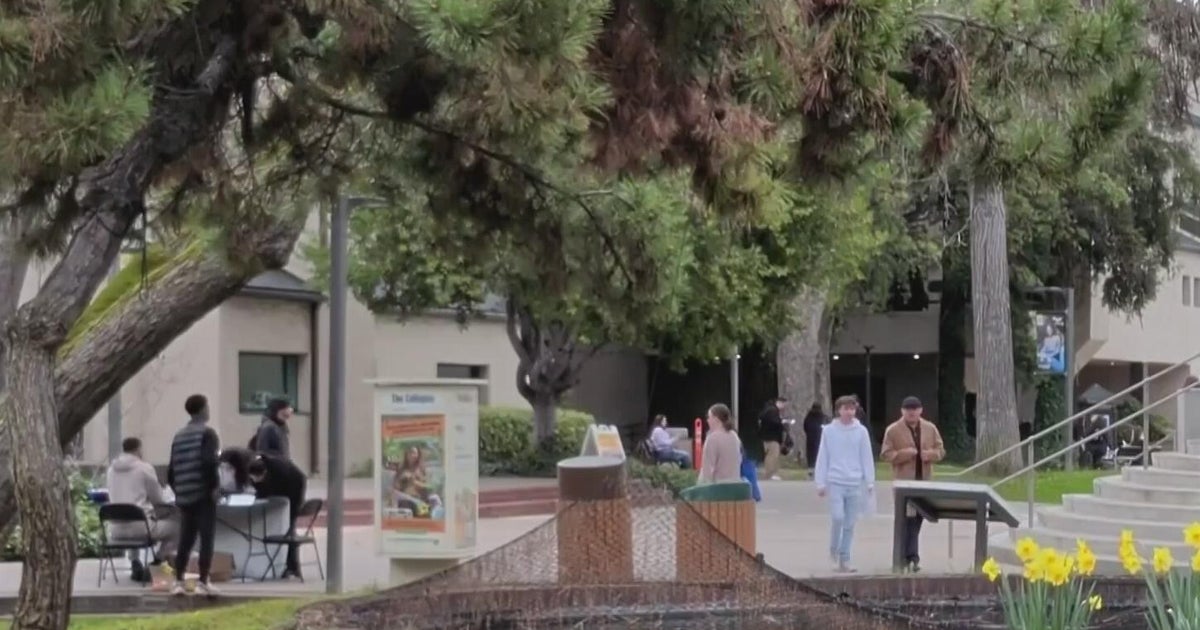"The Bachelorette" and relationship therapy for one
A moment from this week's "The Bachelorette" was another step toward breaking down the stigma of getting help for mental health issues. It may also have spurred some viewers of the reality TV series to wonder what going to a relationship therapist solo is all about.
Rachel Lindsay, a 31-year-old lawyer from Texas, is this season's "Bachelorette" after being passed over in the final weeks of last season's "The Bachelor."
In Monday's episode, while on a date with one of the male contestants, Lindsay asked him about his past relationships and why he's still single.
"I was broken-hearted a few times," said Peter Kraus, a 31-year-old business owner from Wisconsin who's competing against a slew of other attractive men for Lindsay's attention.
Then he told her he'd sought out a counselor for relationship help.
"I saw a relationship therapist and it actually helped me a lot, and I think it's helping me a lot now to be more calm in my thoughts," he said.
Lindsay looked delighted, revealing that she also had seen a therapist after her last long-term relationship broke up.
"I went to a therapist and it was the best decision that I made that entire year and again, it prepared me to realize what I really want for myself and what wasn't working for me," she said.
Clinical psychologist Richard A. Grossman, a relationship therapist in the Boston area, said he has seen numerous patients over the years who have trouble sustaining a healthy, long-term romantic relationship and that therapy can help them work through issues that hold them back from finding a life partner.
"Everyone is different and every situation is different," Grossman told CBS News.
Problems having and sustaining an intimate relationship can be chalked up to many factors, including past family life, previous relationship experiences and even genetics.
"Prior experience does in fact have a large influence on whether people can let others in in a romantic or lifelong way, and that experience can come from many places," Grossman said.
Parents, certainly, can have a major effect on whether the person will be able to "attach," as therapists call it, to another person. Some people who've had a parent relationship that was hurtful or destructive learn to protect themselves from emotions or life events that are just too painful, Grossman said.
"They learn to do it so often or frequently until it's second nature to them to protect themselves and they can only get so far with someone before they shut down. They do not want to go anywhere emotionally where they can get hurt," said Grossman.
Kids who grow up with a narcissistic parent, for example, go through childhood unheard and unseen for who they really are at their core.
"For a child to experience that is painful. They turn into robots that have to please narcissistic parents," he said.
If you have two parents like that, it's even more destructive for future relationships, he said.
So how can relationship therapy for one help?
Just showing up for a few therapy sessions doesn't usually solve the problem. It can take a long time – years, said Grossman. It should be with a therapist you trust, who is genuinely caring and can help you work through early patterns you carry into adult relationships.
"I believe very strongly that the relationship between myself as therapist and my patients, that that relationship has to develop first and become a model in a sense. So that for the first time, the patient can open themselves up and it's not painful and in fact it feels good and feels wonderful. And they can come back each week and experience more of it," he said.
It is like laying down fresh tracks and getting rid of the old, he said.
"You are creating a new model of an intimate relationship in the therapy office and with that as the model, people can then take that kind of experience out into the world and repeat it," Grossman said.
What qualities should someone who's seeking a healthy romantic relationship look for in others?
Grossman suggests considering whether a potential mate has a strong work ethic and would make a good parent – qualities that allow people to keep evolving as humans, to carry on the human race. Then he said empathy and vulnerability in a future partner are vital.
"Someone who has the capacity to hear someone else's experience from their point of view and not just translating it into their own experience," he said.
"People who are defensive and are able to block and stop anything that is the slightest bit painful to them, that's not a good characteristic for a spouse or a mate. If your partner is not vulnerable, it will feel like you aren't being heard or seen. Vulnerability is critical to being able to learn, to learning something new about your partner. No pain no gain, in a sense," Grossman said.




